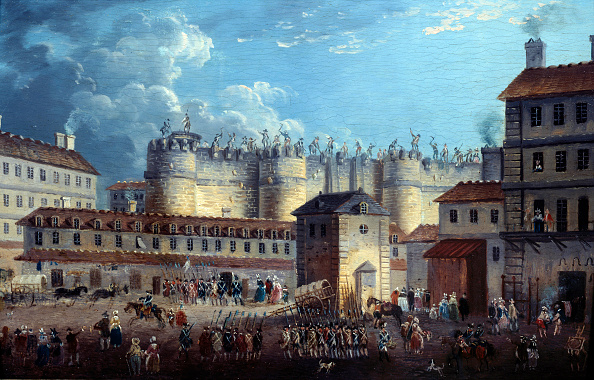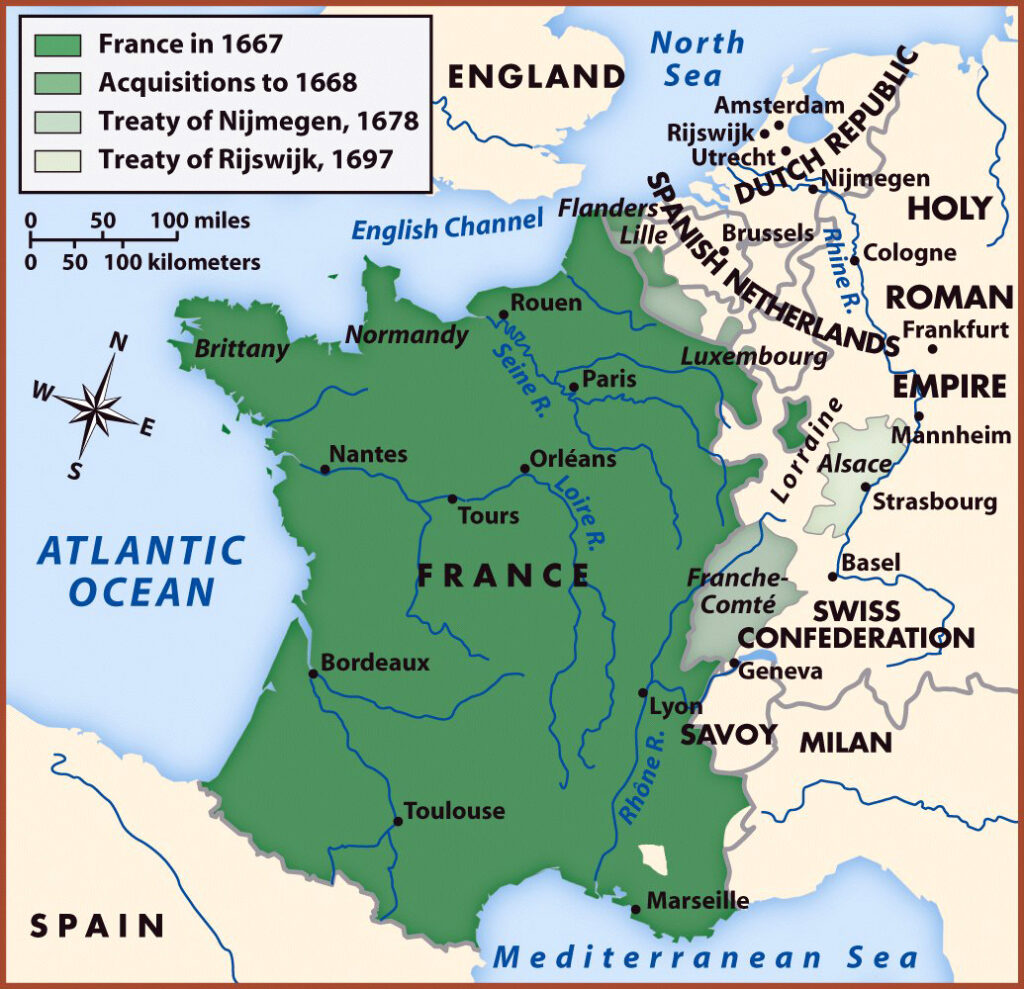Introduction
The French Revolution was a significant period in France in the late 18th century. It involved a strong rebellion against the monarchy, challenging social inequalities and advocating principles such as Liberty, Equality and Fraternity.
Table of Contents

French Revolution : Background (17th Century)
In the 17th century, the global landscape was dominated by kings and emperors driven by a zeal to expand their empires through constant warfare. In the midst of this imperial quest, societies were marked by a strict social hierarchy that divided individuals into distinct classes. At the top stood the aristocracy, the advisers and families of the monarchs, behind them the clergy, including bishops, priests or ulema. The vast majority, making up the common people, mainly farmers and peasants, occupied the lower classes. This hierarchical structure reflected the entrenched power dynamics and differences prevalent in different regions and resembled a system similar to the caste hierarchy in India.
Age of Enlightenment (1600s)

The 17th century witnessed a major intellectual movement challenging established social and political systems. Promoted by thinkers such as René Descartes and Galileo, along with writers such as Edward Herbert, this movement sought to challenge traditional beliefs. This era marked the rise of Deism, a philosophical stance that critically examined and questioned religious doctrines, paving the way for a more rational and independent approach to understanding the world.
Economic Struggles in France (1750s-1760s)
In the 18th century, France faced economic difficulties, burdened by a significant debt resulting from prolonged wars. The tax burden fell disproportionately on the common people, while the nobility and clergy enjoyed minimal tax obligations. This stark contrast in financial responsibility contributed to glaring wealth disparities and fostered an oppressive system that ultimately fueled widespread social unrest.
Louis XVI and Financial Crisis

On his accession to the throne in 1774, King Louis XVI was faced with economic problems and appointed the Minister of Finance, Turgot, to deal with the fiscal difficulties. However, Turgot’s economic reforms proved unsuccessful, sparking the Flour War in 1775. Efforts to impose taxes on the resistant nobility and clergy further exacerbated the financial turmoil of Louis XVI’s reign.
Summoning of the Estates-General (1789)

Faced with financial difficulties, Louis XVI called for the convening of the Estates General to solve the economic problems. Common citizens, represented by the third estate, demanded equal representation and, dissatisfied with the existing structure, established the National Assembly. The historic tennis court oath cemented their determination to draft a new constitution, marking a pivotal moment in the early stages of the French Revolution.
Declaration of Rights of Man and of the Citizen (1789)
The National Assembly, created during the French Revolution, adopted a declaration in August 1789 based on the principles of liberty, equality and fraternity. Despite the progressive stance of the Assembly, King Louis XVI initially resisted signing the document, reflecting the ongoing tension between the monarchy and revolutionary ideals rooted in France.
March on Versailles (October 1789)
Persistent economic difficulties sparked protests and a key march on Versailles. Frustrated women and commoners marched on Versailles demanding economic relief. In response to their demands, King Louis XVI acceded, marking a significant shift in power dynamics and the diminishing influence of the monarchy in the unfolding events of the French Revolution.
Abolition of Monarchy and Reign of Terror
In 1792, the monarchy was abolished and France became a republic. However, this period was marked by the Reign of Terror, characterized by internal conflicts and mass executions. Maximilien Robespierre’s radical actions sparked widespread fear and violence as suspicion and political turmoil gripped the nation during this tumultuous phase of the French Revolution.
Napoleon Bonaparte (1799)

The revolutionary phase in France ended when General Napoleon Bonaparte took power in 1799. In a remarkable turn of events, Napoleon proclaimed himself emperor, ushering in a form of monarchy and marking a departure from the ideals that had fueled earlier phases of the war. The French Revolution.
Legacy of the French Revolution
Despite internal conflicts and the subsequent rise of Napoleon, the ideas emanating from the French Revolution left a lasting impact on the global scene. The principles of liberty, equality and fraternity, integral to the revolutionary ethos, have significantly influenced constitutional frameworks around the world. Moreover, concepts such as secularism, democracy and freedom of expression, rooted in the revolutionary spirit, emerged during the transformative period of the French Revolution and shaped the trajectory of political thought for generations to come.
Indian Connection

While Mahatma Gandhi drew inspiration from the French Revolution, he advocated non-violent means of achieving freedom during India’s struggle for independence. The Preamble of the Indian Constitution clearly reflects the ideals propagated by the French Revolution and embodies the principles of liberty, equality and fraternity that have become the foundation of India’s democratic ethos and governance.
Challenges and Failures
The aftermath of the French Revolution saw internal conflicts, violence and the emergence of a new form of authoritarian government. Initial ideals of equality faced formidable challenges, and the Reign of Terror was characterized by widespread bloodshed. The revolutionary fervor aimed at social transformation ran into complexities, contributing to a period marked by internal strife and the rise of new power dynamics.


One thought on “French Revolution | Why it happened? | All you need to know | 2024”